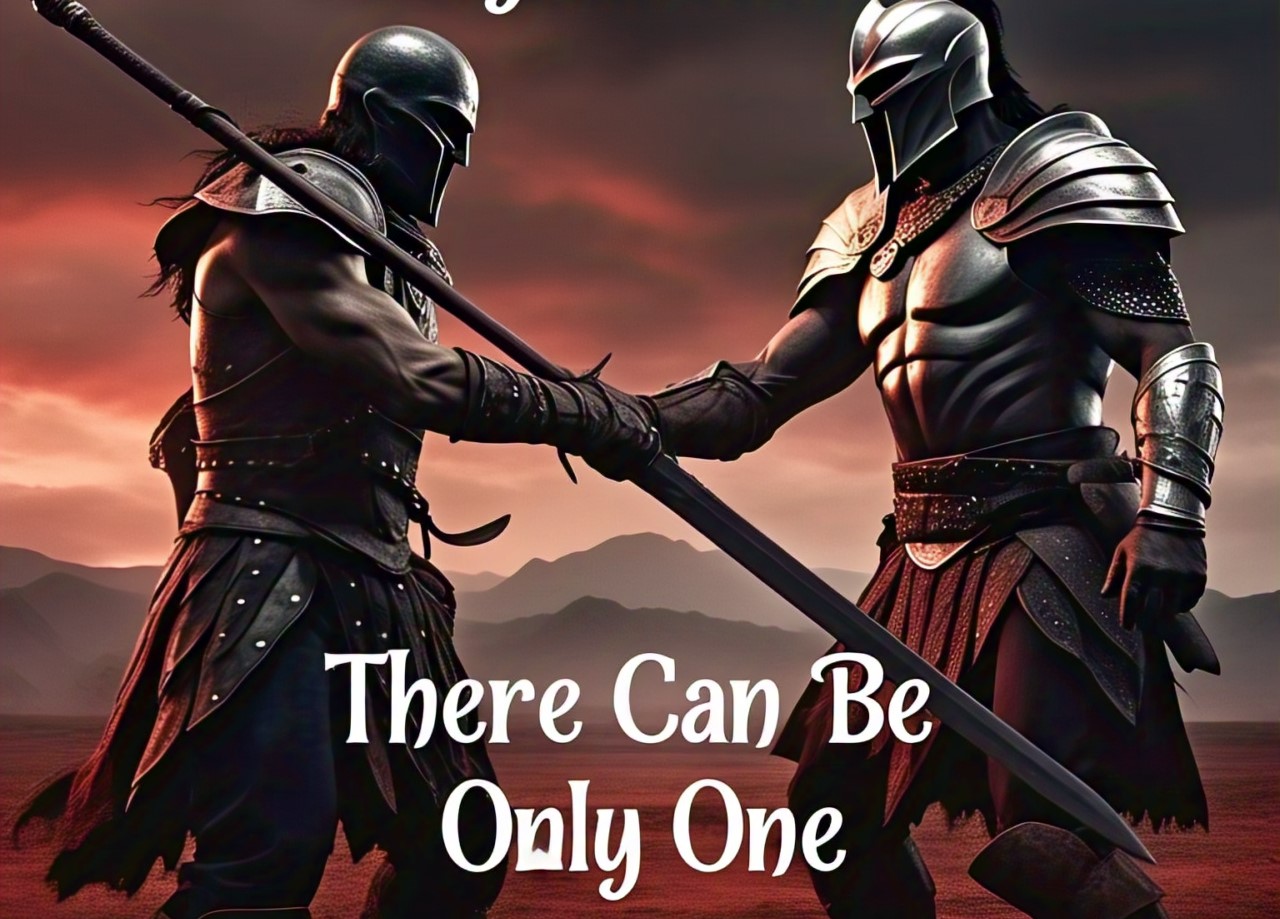Have you ever been so angry at someone that you wanted to get even? Like, really get even? Maybe they hurt you, betrayed you, lied to you, or did something so unfair that it burned deep inside your chest. I get it. I’ve been there. We all have and if you are like me, looking back into the past, you will realize that yes, even though they broke your heart, it wasn’t that big of a deal, we were just being childish, but that’s not the topic for today.
There’s something primal in us that screams for justice an urge to make sure that if someone hurts us, they feel the same pain in return. It’s an instinct as old as time. The whole idea of “an eye for an eye” comes from ancient laws, like Hammurabi’s Code, that were meant to create a fair system of retribution.
Hammurabi’s Code
Hammurabi’s Code is one of the oldest surviving codes of law in the world, dating back to around 1754 BCE. It was created during the reign of Hammurabi, the sixth king of the First Dynasty of Babylon.
Key Features of Hammurabi’s Code
- 282 Laws: The code consists of 282 laws, inscribed on a 7.5-foot-tall stone stele.
- Eye for an Eye: The code is famous for its “eye for an eye, tooth for a tooth” approach to punishment, where the punishment fits the crime.
- Social Hierarchy: The code reflects the social hierarchy of ancient Babylon, with different laws applying to different social classes.
- Family and Marriage: The code includes laws related to family, marriage, and inheritance.
- Business and Trade: The code regulates business and trade practices, including contracts, loans, and property rights.
Examples of Laws from Hammurabi’s Code
- Law 196: “If a man destroys the eye of another man, his eye shall be destroyed.”
- Law 200: “If a man knocks out the teeth of another man of his own rank, his teeth shall be knocked out.”
- Law 129: “If a man’s wife be caught in lying with another man, they shall bind them and cast them into the water.”
- Law 221: “If a physician make a large incision with an operating knife and cure it, or if he open a tumor with an operating knife and saves the eye, he shall receive ten shekels in money.”
Hammurabi’s Code is a remarkable artifact that has shed light on the laws, customs, and values of ancient Babylonian society. Its influence can still be seen in modern legal systems, and it remains an important part of our shared cultural heritage.
The intention behind these laws wasn’t necessarily cruelty; it was about structure, a way to keep people accountable. If there were no consequences, lawlessness would take over. On the surface, it makes sense: you steal from me, I take from you; you hurt me, I hurt you back. Balance, right? You see the thing about good intention, they say it paves the way to hell.
The intention to engage in good acts can fail, and if our claim of good intention, when acted upon, can fail, it points out the principle that there is no merit in good intentions unless they are acted on.
It is essentially saying that certain people might have good intentions but not act on them, which can lead to negative outcomes, or their noble intentions may result in unintended, negative outcomes.
One theory is that people tend to want to act in a good way (good intention) but don’t take any action at all. The delay, wrong action, and inaction don’t produce a good result and, in reality, could lead to a bad outcome. In this case, the best intentions without good and correct actions are, at best, ineffective and worse, detrimental.
Continue Reading: The Road to Hell Is Paved with Good Intentions – Means What Exactly?
Again, on the surface, it makes sense: you steal from me, I take from you; you hurt me, I hurt you back. Let’s think about it together; it’s a straightforward equation, it seems right? Like something that feels fair in the simplest terms and at its core. It’s the kind of justice we see in movies, the kind that makes us cheer when the bad guy “gets what’s coming to him” finally, very well deserved, right? But reality is messier than that. The human experience isn’t just about black and white fairness, it’s layered, emotional, and often driven by perspectives shaped by very often than not deep personal hurt and pain.
But here’s the thing, my friend, my brother, my sister, my colleague, and my neighbor, if we all lived by that rule, where does it end? If someone takes your eye, and you take theirs, then what? The next person takes theirs, and so on, until we’re all stumbling around in darkness. Mahatma Gandhi is often credited with saying, “An eye for an eye leaves the whole world blind.”
Revenge feels good at first. It gives us that temporary satisfaction, a sense of power when we feel powerless, but it’s like drinking salt water when you’re thirsty, it never really quenches. It doesn’t heal; it doesn’t erase the original pain. In fact, it often makes things worse, even though some claim to feel better afterwards.
Again let’s think back, remember a time when you held onto a grudge for days, weeks, months, maybe even for years. Someone you trusted deeply hurt you, and you carried that anger like a badge of honor. You wanted them to suffer the way you had, but here is the funny part, they moved on. They lived their life, happy and oblivious to your resentment, while you were the one who suffered, your anger became a prison, and you were the only one locked inside, and this precisely is a very very important reason we must learn to forgive.
Forgiveness isn’t about saying what they did was okay; it’s not about pretending it didn’t hurt. It’s about deciding that you won’t let their actions have power over you anymore. It’s about choosing peace over endless war.

And yes, I know, I know it’s easier said than done; when you’ve been deeply wronged, forgiveness can feel impossible, but holding onto bitterness is like holding onto a hot coal with the intent of throwing it at someone, you’re the one who gets burned.
So what do we do instead? How do we break the cycle?
First, we acknowledge the pain. It’s real; it happened. No toxic positivity here, we don’t just “move on” without processing it, but then, instead of seeking revenge, we channel that energy into something better. Growth. Healing. Learning. Maybe even turning that pain into wisdom that helps others.
I can remember vividly a conversation, I had with a friend not so long ago on WhatsApp after a post I made. Let me show you.
It’s forgiveness forgetfulness?
When you forgive but still remember that issue and keep making reference to it, have you really forgiven?
I want to know because I’m confused.
It’s easy to feel sad because our brains are wired to notice and remember bad things more than good things. Also, when we experience something sad, it can leave a strong impression on us. The world around us, our personal problems, and our brain’s chemistry can all contribute to feeling sad.
Friend
If you truly forgive you have to choose to forget, you might not really forget, in the sense that sometimes it might come to mind, it is your ability to choose not to hold it over the offender’s head, you decision to not bring it up or make reference to it, or changing your love and thoughtfulness towards the offender; that you forgiving and forgetting.
True, and then again you have to tell yourself that you refuse to be sad, you continue saying and acting in light, some might say you are psyching yourself but that’s not really what it is, you are refusing to be sad, even though you might sometimes feel that, you don’t act that way and even when you fail and you dwell in that sadness you have to pick up yourself, call yourself out from that state.
You have to choose every day not to be sad, choose every day to practice gratitude and be happy.
Will it be hard sometimes? Yes, obviously, but because it’s hard doesn’t mean we will sit there.We are not sad, we are always glad and even when it seems otherwise and we profess and carry gladness in our hearts and character.
And forgiveness is not naivety, yes when you forgive you intentionally ought to seek the light in the heart and character of the offender, but if they prove to be incompetent over and over again. You stop giving them the opportunity to fail, disappoint you or break your heart.
You still love, care and want the best for the person, you choose to forget their wrongs but you can still clearly see that their incompetence is still there, so you end that relationship or that partnership or business. Not out of hate, but again because if their incompetence.
Forgiveness is love, tenderness and choosing to forget with plenty of benefits of doubt but forgiveness is certainly NOT naivety even though it can sometimes look like that.
For I will be merciful to their unrighteousness, and their sins and their lawless deeds I will remember no more.” – Hebrews 8:12
This is God talking but if the individual refuses to sit up and keep God’s Word, as much as God wants to, as much as He needs that individual to follow HIS leadings and precepts, there are some responsibilities that will not be bestowed upon because that individual is incompetent. Hence again all is forgiven, wrongs deeds have been forgotten but incompetence will NOT allow some people behave rightly. And back to our conclusion forgiveness is NOT naivety.
As we forgive and forget we still expect people to DO BETTER and BE BETTER.
Value Faith
Imagine a world where we all responded to hurt with understanding instead of retaliation. Where we didn’t escalate conflicts but tried to break the chain of hatred. Where we are so NOT obsessed with getting even but more focused on moving forward; that’s a world worth working toward, we can agree on that, can we?
At the end of the day, I’m sure we don’t want to live in a world full of blind, bitter people. We want to see. We want to grow. We want to be free. And maybe the best way to do that is to put down the sword, unclench the fist, and choose a different way.
Read Also: Disagreement Without Hate
Read Also: Toxic Empathy: When Compassion Turns into a Burden and How to Protect Yourself
Read Also: Double Standard Is No Standard At All
Conclusion
Let’s read and listen to what Jesus said about this as our concluding part of this discussion, Matthew 5:38-48.
Eye for Eye
38 – “You have heard that it was said, ‘Eye for eye, and tooth for tooth.’
39 – But I tell you, do not resist an evil person. If anyone slaps you on the right cheek, turn to them the other cheek also.
40 – And if anyone wants to sue you and take your shirt, hand over your coat as well.
41 – If anyone forces you to go one mile, go with them two miles.
42 – Give to the one who asks you, and do not turn away from the one who wants to borrow from you.
Love for Enemies
43 – “You have heard that it was said, ‘Love your neighbor and hate your enemy.’
44 – But I tell you, love your enemies and pray for those who persecute you,
45 – that you may be children of your Father in heaven. He causes his sun to rise on the evil and the good, and sends rain on the righteous and the unrighteous.
46 – If you love those who love you, what reward will you get? Are not even the tax collectors doing that?
47 – And if you greet only your own people, what are you doing more than others? Do not even pagans do that?
48 – Be perfect, therefore, as your heavenly Father is perfect.






1 comment
Emphasis is on the importance of acknowledging and processing pain, rather than suppressing or seeking revenge. It encourages channeling energy into growth, healing, and learning, and transforming painful experiences into wisdom that can help others. By doing so, we can break free from bitterness and hurt, and cultivate compassion, empathy, and understanding.